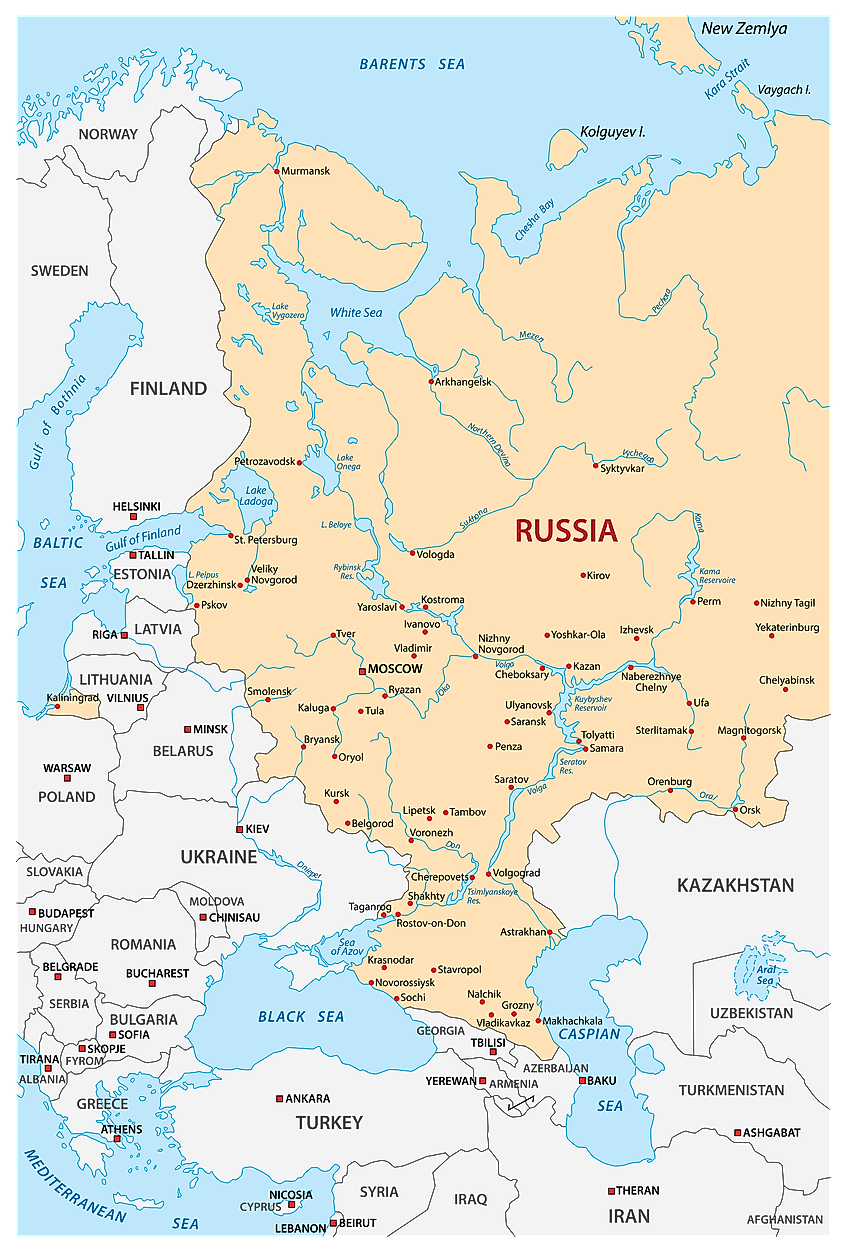Why in the News?
This newscard is an excerpt from the original article published in the Indian Express.

About the Volga River:
- Overview: The longest river in Europe (about 3,500 km), originating in the Valdai Hills northwest of Moscow and flowing southeast to the Caspian Sea at Astrakhan.
- Drainage Basin: Covers around 1.35 million sq. km, among Europe’s largest river systems, with major tributaries, Kama, Oka, Vetluga, and Sura.
- Historical Role: Served as a critical front during the Battle of Stalingrad (World War II) and remains central to Russian historical and strategic narratives.
- Cultural Significance: Revered as “Mother Volga”, symbolising Russian unity, resilience, and identity, deeply embedded in folklore and national consciousness.
- Economic Importance: It contributes one-fourth of Russia’s agricultural output, supports industrial fishing, and sustains key industries, oil refining, shipbuilding, hydroelectric power.
- Navigation & Connectivity: Linked to the Baltic, Black, and Caspian Seas through an extensive network of canals and reservoirs, forming the backbone of Russia’s inland transport system.
- Urban & Industrial Corridor: Major cities like Kazan, Samara, Nizhny Novgorod, and Volgograd lie along its course, forming Russia’s industrial-agricultural heartland.
- Ecological Richness: Supports about 260 bird species and 70 fish species, making it a key biodiversity hotspot within Eurasia.
| [UPSC 2020] Consider the following pairs: River Flows into
1. Mekong: Andaman Sea 2. Thames: Irish Sea 3. Volga: Caspian Sea 4. Zambezi: Indian Ocean Which of the pairs given above is/are correctly matched? Options: (a) 1 and 2 only (b) 3 only (c) 3 and 4 only * (d) 1, 2 and 4 only |
Get an IAS/IPS ranker as your 1: 1 personal mentor for UPSC 2024

